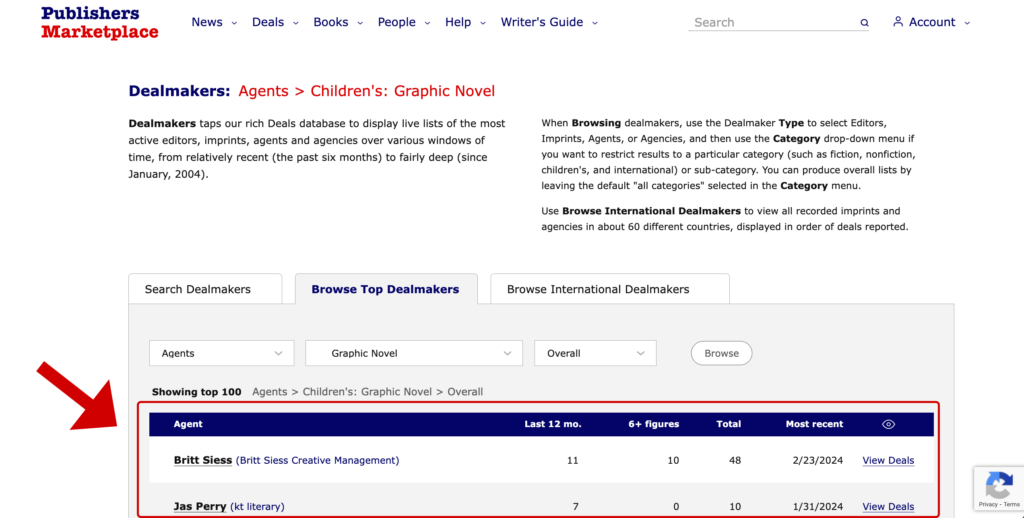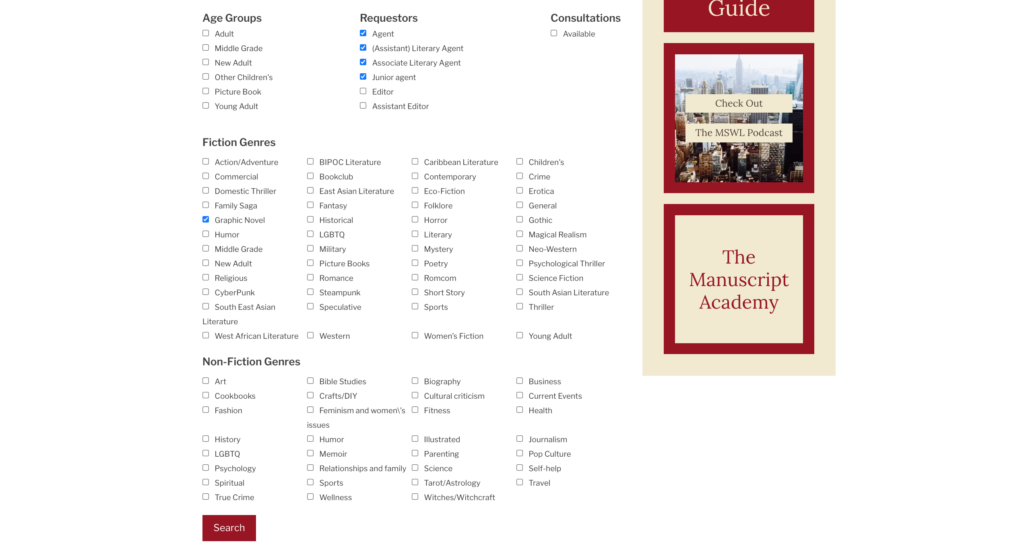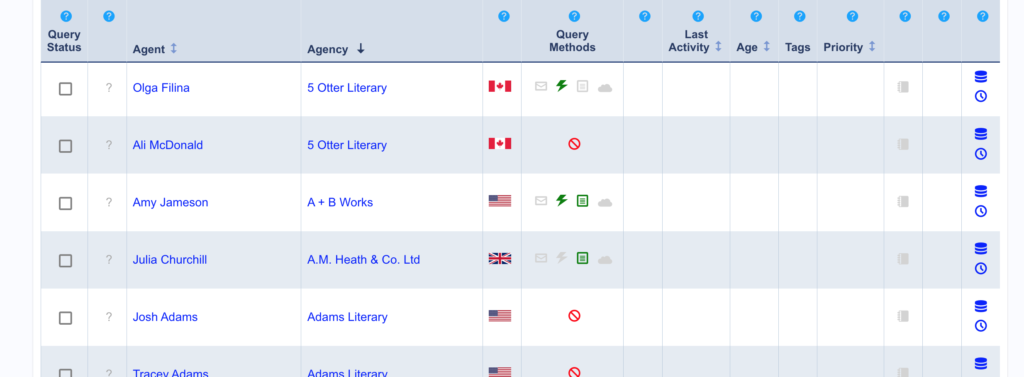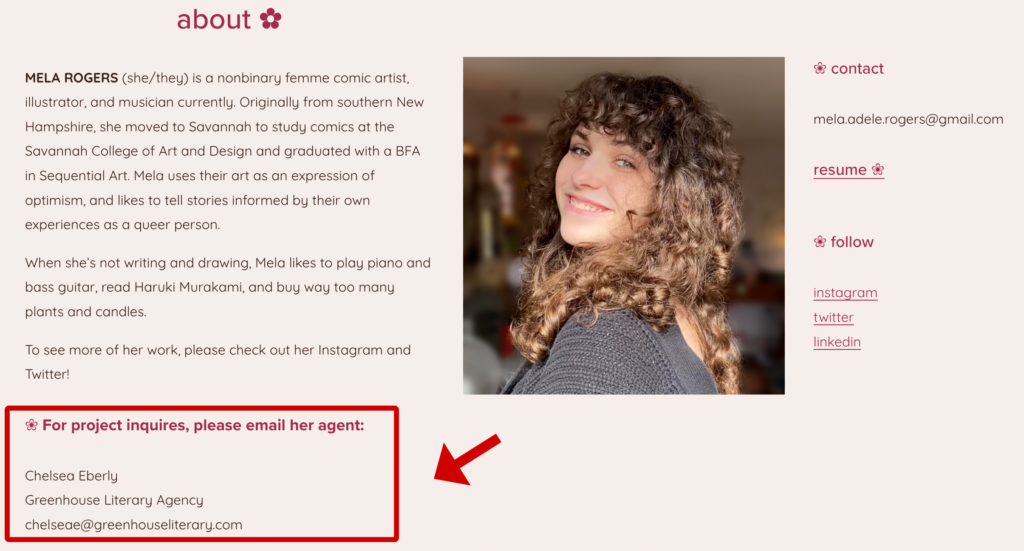Why should I get an agent?
If you want to have your book traditionally published, chances are you’re going to need a literary agent. Without one, it’s much more challenging to get a book deal with a publisher like Scholastic because large publishers don’t usually accept unsolicited manuscripts–manuscripts submitted from an unagented author to an editor at a publishing house.
Small to mid-sized publishers sometimes allow you to submit directly to them while some publishers might open submissions to the public during what’s called an “Open Submission” period. If you have a large online presence, you might even be approached by one, however I wouldn’t rely on this. Unless you know the intricacies of publishing contracts, I’d advise getting an agent.
Agents not only offer contract negotiation, but they also have connections to editors to get you the best deal possible and have a vast knowledge of the publishing market to assist you. If you have an editorial agent, you’ll also get feedback on how to make your book better.
Before You Start
Make sure your graphic novel pitch package is ready to go! You can view my tips on what to include in a graphic novel pitch package here.
Beware of Schmagents!
Please be aware that fake agents exist! Anyone can say they’re an agent online, so it’s always important to do your due diligence to avoid schmagents–bad or fake agents. You can find a list of red flags on Writer Beware: Literary Agents.
Remember: it’s always better to have no agent than a bad agent.
Agents Aren’t Always Open to Queries
In your search, you’ll encounter agents that are “Closed” to queries, which means you can’t submit your book pitch to them. When this happens, you can either 1) wait until that agent opens to queries, 2) see if a colleague can give you a referral if they’re open by referral-only, or 3) focus on agents that are open.
Where to Find Graphic Novel Agents
1: Publisher’s Marketplace
Publisher’s Marketplace is a database where you can quickly search for agents, authors, book deals, and more! Unlike other resources, Publisher’s Marketplace is great because it gives data you can use to research the track record of the agent. This is especially important to make sure an agent is legit.

Given that Publisher’s Marketplace is paid, what I usually suggest is to get a subscription for a month and do all of your research within that month.
Tips for using Publisher’s Marketplace:
- Search for a graphic novel you like and see what agent represents that author.
- Make sure to double-check that agent is still in the business and what their current agency is.
- Look up the top selling graphic novel agents (need membership to view this page)
- If you want an agent that sells more that just graphic novels, you might want to see if they’ve sold the other format you write in as well (ex: picture books).
- What types of deals has this agent made?
- Example: Are they selling regional rights (North American)? Any auctions? 6 figure deals? Although none of these things are necessary and might not apply to a newer agent, having the above could show that the agent is good at negotiating.
- What editors/publishing houses have they sold to in the past?
- Perhaps you have a specific publisher in mind you’d like to sell to; knowing your agent has a preexisting relationship with this publisher could help you. It could also help you know if they’ve sold a book similar to you recently, which may impact their manuscript wishlist.
2: Manuscript Wishlist (MSWL)
Manuscript Wishlist is a website that’s ideal for finding what an agent is looking for. It’s also great because you’ll get a detailed list of what genres/subgenres they represent, books they like, submission guidelines, and random facts about them.
All you have to do is go to their “Genre/Name” search, select “Graphic Novels”, and filter down by if you only want to find agents and/or editors. This is also great because you can filter down by specific age groups as well including middle grade, young adult, and more. You can find below a filter I made for graphic novel agents/editors:

3: Query Tracker
Query Tracker is a great website for submitting queries to agents as well as finding info about an agent’s submission guidlines and querying response behavior. It’s also ideal for keeping track of your queries and knowing info like if an agent is open to queries, where they’re located, and where you are in the queue. You can also get info from other authors/illustrators who submitted to that agent in the comments section.
The Premium subscription also gives you access to a lot of helpful features such as access to the “Do-Not-Query List”, Query reply/request rates, gender filters, and more.

4: Social Media
One of the greatest things about social media is that you can find people by hashtags and users. If you’re trying to find graphic novel agents or editors, you could type in “#MSWL graphic novel” for example. Sometimes, you can even filter down by the sub genre (MG, YA, horror, etc) or search for pitch events.
Historically, Twitter was the go-to place for agents however, since its conversion to X, agents scattered across Twitter X, Bsky, TikTok, Threads, and Instagram while some left social media altogether. Because of this, I’d caution to rely only on social media because a lot of agents don’t have a presence there. Instead, I’d use it more for vibe checks and to see how they promote their authors.

5: Graphic Novel Websites
Graphic novelists will sometimes post who they’re represented by on their personal website. If you go to their website, usually you can find this in their bio section, although they might post it elsewhere too.

6: Book Acknowledgments
Oftentimes, authors/illustrators will thank their agent in the acknowledgements section of their book. They may even thank their editor as well, which is always good to know in case you might want to submit to them. You can also look up other details in the book such as what program they used to create the graphic novel or what publishing imprint they use.
7: Word of Mouth
If you have friends in the traditional publishing industry, you could always ask them if they have agent recommendations. This is especially helpful if the agent they recommend is closed to queries, in which case they could give you a referral or find out when they’re opening to queries. A lot of agents are closed to queries so having them give you a referral could put your book in front of them.
8: Other!
There are so many other ways you can find agents too.
- Writing Conferences (SCBWI)
- Pitch Events (Kids Comics Unite Pitchfest)
- Comic Conventions
If you’d like to receive notifications about future blog posts like this one, sign up for my Newsletter below!
